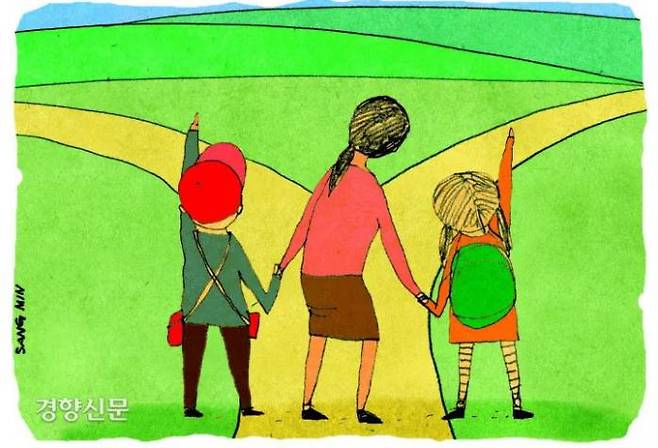Seoul Considers Lifelong Learning Centers for "Slow Learners"
이 글자크기로 변경됩니다.
(예시) 가장 빠른 뉴스가 있고 다양한 정보, 쌍방향 소통이 숨쉬는 다음뉴스를 만나보세요. 다음뉴스는 국내외 주요이슈와 실시간 속보, 문화생활 및 다양한 분야의 뉴스를 입체적으로 전달하고 있습니다.
[경향신문]

The Kyunghyang Shinmun confirmed on September 14 that the Seoul metropolitan government has begun promoting a lifelong education center for people with borderline intelligence functioning (BIF) for the first time in Korea. Borderline intelligence functioning describes people who are not diagnosed with an intellectual disability, but who fail to meet normal intellectual functioning. Usually, they have an IQ of 71-84 and are known as slow learners.
In the past, there was no state support for people with BIF. They were excluded from various state programs for the disabled, because they were always on the border between people with and without disabilities. People with BIF face challenges, such as poor performance in schools, maladjustment, and failure to lead independent lives throughout their entire lives, but since they can’t be registered as intellectually disabled, they hardly receive welfare benefits, such as support in education and employment. Domestic research on BIF is also just taking its first baby steps.
Thus, various policies on BIF are mostly attached with the modifier, “first,” when they are implemented. But in South Korea, there are more people with BIF than people registered as disabled. Of the total 9.83 million citizens of Seoul, 1.34 million or 13.6% are estimated to have BIF. This is a bigger number than the 393,408 (4.1%) people registered as disabled in Seoul at the end of last year.
Last October, the Seoul metropolitan government enacted an ordinance to support lifelong learning for people with BIF for the first time in the nation. This means, the legal basis to support lifelong learning for people with BIF was enacted as a local ordinance for the first time only last year. Seocho-gu was also the first local district to enact a similar ordinance at the gu level last February.
Centers providing lifelong learning to people with BIF are necessary for these people need to be educated in all situations literally throughout their entire lives. Since 2019, the city had run a project to support the independence of children with BIF at child welfare facilities, a project to support the independence of slow learners among young people, and a pilot project to establish a system supporting the independence of slow learners, but they ended up as one-time events even within the metropolitan government. So there was a need to provide more structured and continuous support measures. The Seoul metropolitan government plans to design a specific plan and begin establishing the center as soon as the relevant budget is finalized in November. However, a representative of the metropolitan government said, “Since we are still reviewing the issue with the doors open to all possibilities, we are not at a stage to disclose specific plans.”
Chae Yu-mi, a member of the Seoul Metropolitan Council who proposed the Seoul ordinance on lifelong learning for people with BIF told the reporter over the phone this day, “Setting up a lifelong learning center for people with BIF is just the first step for such people,” and added, “At present, the city is working to open just one center in the city center, but in the long term, we need to open more centers for people with BIF and operate them in all areas in Seoul, allowing people with BIF and their families to receive services near their place of residence.”
Copyright © 경향신문. 무단전재 및 재배포 금지.
- 70대 몰던 SUV, 주차장 나오자마자 건물로 돌진…운전자 ‘급발진’ 주장
- 국민의힘이 파악한 ‘이탈표 4표’의 정체는···안철수+3명의 실수?
- 대한민국을 북한이라 한 파리올림픽···바흐 IOC 위원장 “대통령에 직접 사과하겠다”
- 이진숙, ‘위안부 강제동원’에 “논쟁적 사안”이라고 답했다 취소
- KBS, 기자 노트북에 있던 ‘세월호 리본’ 모자이크 처리
- ‘내전’ 국민의힘, 부산 기초의원 9명 제명·탈당 등 조치…‘반란표’ 중징계
- 김진표 전 의장, “윤 대통령, 이태원참사 조작가능성 언급” 회고록 수정
- 함께 술 먹고 조수석 탑승한 친구 협박해 돈 뜯어낸 공무원
- 목표는 ‘공영방송 이사 선임’…거센 반발에도 ‘2인 방통위’ 벼르는 정부
- [속보] 뜸 들이던 오바마, 해리스 지지 선언···“승리 위해 모든 것 할 것”